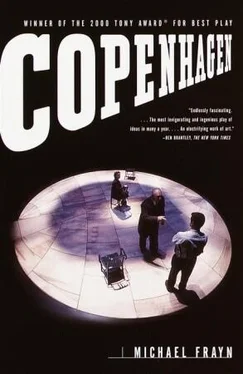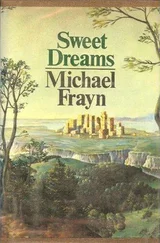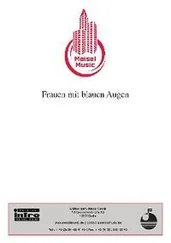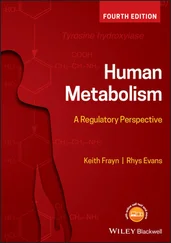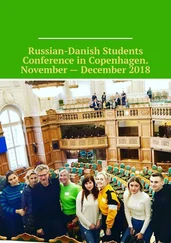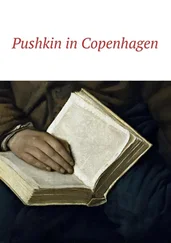Bohr My dear Heisenberg! My dear friend!
Margrethe Silence. The silence we always in the end return to.
Heisenberg And of course I know what they’re thinking about.
Margrethe All those lost children on the road.
Bohr Heisenberg wandering the world like a lost child himself.
Margrethe Our own lost children.
Heisenberg And over goes the tiller once again.
Bohr So near, so near! So slight a thing!
Margrethe He stands in the doorway, watching me, then he turns his head away …
Heisenberg And once again away he goes, into the dark waters.
Bohr Before we can lay our hands on anything, our life’s over.
Heisenberg Before we can glimpse who or what we are, we’re gone and laid to dust.
Bohr Settled among all the dust we raised.
Margrethe And sooner or later there will come a time when all our children are laid to dust, and all our children’s children.
Bohr When no more decisions, great or small, are ever made again. When there’s no more uncertainty, because there’s no more knowledge.
Margrethe And when all our eyes are closed, when even the ghosts have gone, what will be left of our beloved world? Our ruined and dishonoured and beloved world?
Heisenberg But in the meanwhile, in this most precious meanwhile, there it is. The trees in Faelled Park. Gammertingen and Biberach and Mindelheim. Our children and our children’s children. Preserved, just possibly, by that one short moment in Copenhagen. By some event that will never quite be located or defined. By that final core of uncertainty at the heart of things.
Where a work of fiction features historical characters and historical events it’s reasonable to want to know how much of it is fiction and how much of it is history. So let me make it as clear as I can in regard to this play.
The central event in it is a real one. Heisenberg did go to Copenhagen in 1941, and there was a meeting with Bohr, in the teeth of all the difficulties encountered by my characters. He almost certainly went to dinner at the Bohrs’ house, and the two men almost certainly went for a walk to escape from any possible microphones, though there is some dispute about even these simple matters. The question of what they actually said to each other has been even more disputed, and where there’s ambiguity in the play about what happened, it’s because there is in the recollection of the participants. Much more sustained speculation still has been devoted to the question of what Heisenberg was hoping to achieve by the meeting. All the alternative and co-existing explications offered in the play, except perhaps the final one, have been aired at various times, in one form or another.
Most anxious of all to establish some agreed version of the meeting was Heisenberg himself. He did indeed go back in 1947 with his British minder, Ronald Fraser, and attempted to find some common ground in the matter with Bohr. But it proved to be too delicate a task, and (according to Heisenberg, at any rate, in his memoirs) ‘we both came to feel that it would be better to stop disturbing the spirits of the past.’ This is where my play departs from the historical record, by supposing that at some later time, when everyone involved had become spirits of the past themselves, they argued the question out further, until they had achieved a little more understanding of what was going on, just as they had so many times when they were alive with the intractable difficulties presented by the internal workings of the atom.
The account of these earlier discussions in the twenties reflects at any rate one or two of the key topics, and the passion with which the argument was conducted, as it emerges from the biographical and autobiographical record. I am acutely aware of how over-simplified my version is. Max Born described the real story as not so much ‘a straight staircase upwards, but a tangle of interconnected alleys,’ and I have found it impossible to follow these in any detail (even where I can begin to understand them). In particular I have grossly understated the crucial role played by Born himself and by his pupil Pascual Jordan at Göttingen in formulating quantum mechanics (it was Born who supplied the understanding of matrices that Heisenberg lacked, and the statistical interpretation of Schrödinger’s wave function), and of Wolfgang Pauli in Hamburg, whose exclusion principle filled in one of the key pieces in the puzzle.
But the account of the German and American bomb programmes, and of the two physicists’ participation in them, is taken from the historical record; so is the fate of Danish Jewry; Heisenberg’s experiences in Germany before and during the war, his subsequent internment, and the depression that clouded his later years. I have filled out some of the details, but in general what he says happened to him — at the end of the First World War, on Heligoland, during his nocturnal walk in Faelled Park, during the Berlin air-raid and his internment, and on his ride across Germany, with its near-fatal encounter along the way — is based very closely upon the accounts he gave in life.
The actual words spoken by my characters are of course entirely their own. If this needs any justification then I can only appeal to Heisenberg himself. In his memoirs dialogue plays an important part, he says, because he hopes ‘to demonstrate that science is rooted in conversations.’ But, as he explains, conversations, even real conversations, cannot be reconstructed literally several decades later. So he freely reinvents them, and appeals in his turn to Thucydides. (Heisenberg’s father was a professor of classics, and he was an accomplished classicist himself, on top of all his other distinctions.) Thucydides explains in his preface to the History of the Peloponnesian War that, although he had avoided all ‘storytelling’, when it came to the speeches, ‘I have found it impossible to remember their exact wording. Hence I have made each orator speak as, in my opinion, he would have done in the circumstances, but keeping as close as I could to the train of thought that guided his actual speech.’ Thucydides was trying to give an account of speeches that had actually been made, many of which he had himself heard. Some of the dialogue in my play represents speeches that must have been made in one form or another; some of it speeches that were certainly never made at all. I hope, though, that in some sense it respects the Thucydidean principle, and that speeches (and indeed actions) follow in so far as possible the original protagonists’ train of thought.
But how far is it possible to know what their train of thought was? This is where I have departed from the established historical record — from any possible historical record. The great challenge facing the storyteller and the historian alike is to get inside people’s heads, to stand where they stood and see the world as they saw it, to make some informed estimate of their motives and intentions — and this is precisely where recorded and recordable history cannot reach. Even when all the external evidence has been mastered, the only way into the protagonists’ heads is through the imagination. This indeed is the substance of the play.
*
I can’t claim to be the first person to notice the parallels between Heisenberg’s science and his life. They provide David Cassidy with the tide (Uncertainty) for his excellent biography (the standard work in English). ‘Especially difficult and controversial,’ says Cassidy in his introduction, ‘is a retrospective evaluation of Heisenberg’s activities during the Third Reich and particularly during World War II. Since the end of the war, an enormous range of views about this man and his behaviour have been expressed, views that have been fervently, even passionately, held by a variety of individuals. It is as if, for some, the intense emotions unleashed by the unspeakable horrors of that war and regime have combined with the many ambiguities, dualities, and compromises of Heisenberg’s life and actions to make Heisenberg himself subject to a type of uncertainty principle …’ Thomas Powers makes a similar point in his extraordinary and encyclopaedic book Heisenberg’s War , which first aroused my interest in the trip to Copenhagen; he says that Heisenberg’s later reticence on his role in the failure of the German bomb programme ‘introduces an element of irreducible uncertainty.’
Читать дальше
